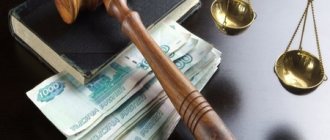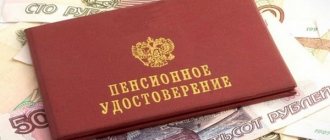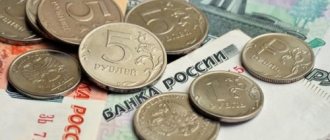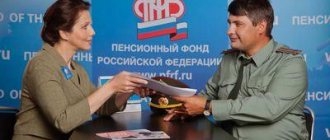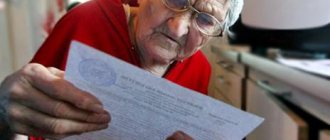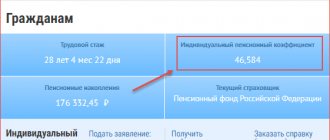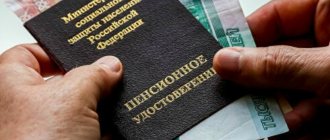A report on the results of an audit of the activities of the Pension Fund over the past years has been published on the official website of the Accounts Chamber of the Russian Federation (link). As a result of the audit, errors were revealed due to which some pensioners did not receive their due cash payments during 2017–2019.
Next, I will tell you what is the reason for these errors, how to find out if they affected you personally, and how, if something happens, to return legally due but not received money.
Where do errors come from?
First of all, databases are very poorly maintained, including personal accounts of future pensioners, explained deputy Sergei Mironov. An audit by the Accounting Chamber of the PFR branches in Moscow, the Moscow region and the Saratov region showed that the accounts of almost 13 thousand Russians do not have data for 2020; for 2018, 27 thousand people do not have them. It turns out that when these people start applying for pensions, part of the length of service will not be taken into account.
“There are many shortcomings in the forms of other documents themselves, many errors in their preparation. A big problem is the discrepancy in information about citizens in different information systems: civil registry office, Ministry of Internal Affairs, Federal Tax Service, etc. This also creates errors. There is no proper interdepartmental interaction so that errors can be corrected in a timely manner,” the parliamentarian added.
During the audit, violations of pension rights were identified in 53% of the cases studied. It’s scary to even imagine, the deputy emphasized, what will turn out if a total inspection of PFR branches across the country is carried out.
Deficiency of the Russian pension system
The Russian Ministry of Labor has amended the Pension Fund budget for two thousand and eighteen to reflect a deficit that is more than twice as large as predicted, increasing from 106.6 billion rubles to 256.8 billion rubles. It is expected that the Pension Fund will receive only 66.7 billion rubles with expenses of 83.5 billion rubles. Representatives of the Pension Fund told RBC magazine that the revised forecast is the result of cuts in federal subsidies and the growing costs of Russian pension payments.
The Pension Fund’s “distribution” budget (money collected from working Russians and paid to current pensioners) was underfunded by more than 150 billion rubles in 2018, and the Ministry of Labor plans to fill this gap with money taken from the fund’s “transfer” budget.
Politicians in Moscow who advocate raising the retirement age in Russia cite the growing Pension Fund deficit as one of their main justifications.
How will recalculation be carried out?
The procedure for recalculating pensions will have to be developed by specialists from the Ministry of Labor. Now, when the Pension Fund itself identifies errors in calculations, they are corrected in two ways: automatically, without an application, or upon application. The bill proposed by deputies also allows for both recalculation options. Moreover, it will be possible to submit an application not only at the Pension Fund branch, but also at the MFC. True, only if the centers and the fund agree on the provision of such a service.
In case of recalculation of the shortfall in pension, interest on the underpayment will be additionally reimbursed. The amount of such interest, Mironov clarified, is established by the bill.
“When calculated for periods before January 1, 2020, the amount of interest is determined by the refinancing rate of the Bank of Russia; after January 1, 2016, by the key rate of the Bank of Russia in force during the corresponding periods, and cannot be reduced,” the parliamentarian concluded.
How does the Russian pension system work?
In 2014, Russia suspended its experiment with a market-based savings program that allowed young workers to invest up to six percent of their income back into the economy. Under this system, another sixteen percent of these people's wages came from the "insurance component" of the pension system, funding both "fixed basic payments" (retirement benefits guaranteed to all retirees) and individual accounts (allowing higher earners to receive slightly larger pensions) , The moratorium on market accounts is due to expire in two thousand and twenty.
Symmetrical answer
First Deputy Chairman of the Committee on Budget and Taxes Sergei Katasonov also supports the proposal. If a person underpays taxes, he is assessed penalties, and sometimes even fined. In this situation, the solution must be symmetrical. If the pension was underpaid, this amount must be reimbursed along with interest.
Chairman of the State Duma Committee on Labor, Social Policy and Veterans Affairs Yaroslav Nilov considers the bill necessary and important. According to him, Deputy Prime Minister Tatyana Golikova also noted that a very large percentage of complaints are satisfied and pensions are recalculated upward.
“There are commonplace mistakes made when calculating pensions. Operators believe that there is an error factor. There are cases when issues with confirmation or impossibility of confirming experience have to be resolved individually. The pension is calculated based on the Soviet, post-Soviet and modern insurance systems,” Nilov added.
The Pension Fund of Russia does not always take into account all episodes of work experience. Sometimes it is easier for employees to say that it is impossible to confirm a piece of work experience than to check some problematic data. And this affects the size of the pension. According to Nilov, if deputies send a request after receiving a complaint, the payment is usually recalculated upward. Although there are also cases when the Pension Fund is not to blame. In particular, it is now impossible to obtain any documents from the Pension Fund of Ukraine.
Difference between state pension fund and non-state pension funds
In a public pension fund, called a pay-as-you-go pension plan, contributions paid by assets are used to pay pensions to retirees. This system, which is usually mandatory, is based on solidarity between generations. Being highly vulnerable to unemployment and demographic changes, the financial balance of the system depends on the ratio of the number of savers to the number of pensioners.
In contrast to this system, private pension funds or a fully funded pension plan are often individual and voluntary, allowing working people to set their own retirement. They save during their working lives to insure their old age. Contributions received are the subject of financial investments. The return on these investments depends primarily on market developments.
The Pension Fund explained that temporarily part of the insurance pension may be withheld due to the fact that it was overpaid in previous months. In this case, the excess money will be returned to the Pension Fund monthly by deducting a certain amount. More than 20% of the established pension cannot be calculated per month.
The pension may also be reduced by a court decision on recovery due to abuse by a citizen. For example, if a pensioner did not pay the rent on time, or did not pay off any fines. In this case, a collection case is initiated, which is sent to the bailiffs. Part of the pension will be retained by him until the debt is fully repaid.
In addition, a reduction in the size of the pension may occur on the basis of executive documents. In this case, the amount of deductions increases to 50%. If the penalties relate to unpaid child support, the citizen may be deducted up to 70% of the total amount.
A constant factor due to which the pension may suddenly decrease is the citizen’s move to another city. This is due to the fact that when you change your place of residence, the regional coefficient, which affects the amount of payments, may also change.
In order to find out exactly why the reduction in payments occurred, you need to contact the Pension Fund. Such information can be obtained at any branch of the fund, regardless of the place of permanent registration.
Earlier EADaily reported that Deputy Chairman of the Russian Government Tatyana Golikova spoke about how much pensions will be indexed.
Permanent news address: eadaily.com/ru/news/2019/09/14/pfr-esli-pensiya-vdrug-umenshilas-sprosite-nas-pochemu Published September 14, 2020 at 14:56
Add EAD to your sources: Yandex-News Google News
All news
- 02:19 Zelensky: Ukraine will not provide military assistance to Azerbaijan
- 01:56 Kim Jong-un wished Donald Trump a speedy recovery
- 01:34 The head of the Ukrainian Air Force denies involvement in the An-26 crash
- 01:00 Nikol Pashinyan and Emmanuel Macron discussed the situation in Karabakh
- 00:34 White House: Trump suffers coronavirus with “mild symptoms”
- 00:23 The policeman who issued a false certificate in the Efremov case was fired
- 00:01 The number of deaths per day from Covid-19 in Moscow exceeded 30 people
02.10.2020
- 22:36 The European Union hopes to get closer to Belarus through sanctions
- 22:08 Turkish issue at the EU summit: Ankara was urged to refrain from provocations
- 22:02 Decriminalization of forestry: re-equipment of the industry or mask show?
- 21:46 Armenia will present data on incursions by drones of the Azerbaijani Armed Forces to the CSTO
- 21:29 Serbia has not made any “U-turn from Moscow” - Petr Iskenderov
- 21:00 Albanians in Serbia want to be on the agenda of negotiations between Pristina and Belgrade
- 20:11 A missile strike was carried out on the capital of Nagorno-Karabakh
- 19:57 Pashinyan’s chief adviser: Türkiye is sowing death around itself - interview
- 19:15 WHO advises against introducing strict restrictions in Russia due to coronavirus
- 19:01 Russian Foreign Ministry: We will automatically support retaliatory Belarusian sanctions
- 18:59 Russia, following Belarus, imposed sanctions on the EU
- 18:26 Türkiye began preparing Azerbaijan for unmanned warfare back in the summer
- 18:09 In Moldova, the real number of Covid-19 exceeds statistics - Ministry of Health
- 18:04 Elections in Moldova: candidates began campaigning, everyone is confident of their victory
- 17:59 Putin and Pashinyan again discussed the situation in the Karabakh conflict zone
- 17:59 The Kyiv Court of Appeal upheld the verdict of Viktor Yanukovych
- 17:52 Washington is trying to push intra-Afghan negotiations in Doha
- 17:45 AvtoVAZ increased sales after the August fall
- 17:36 Construction of the border section of the Khaf-Herat railway is being completed
- 17:36 Pashinyan: “Who gave NATO Turkey the right to fight in the South Caucasus?”
- 17:24 The editor-in-chief of an online publication burned herself in front of the Ministry of Internal Affairs building in Nizhny Novgorod
- 17:20 News about Trump's illness caused a rapid rise in gold prices
- 17:16 Kabul is perplexed: Armenia asks to deprive us of observer status in the CSTO
- 17:00 German columnist: Navalny is an extreme outcast
- 16:55 $40 million withdrawn from funds investing in Russian assets
- 16:53 Foreign journalists were banned from working in Belarus
- 16:53 There are new victims of Covid-19 in Georgia, the Ministry of Health calls on the population to stay at home
- 16:45 Expert: It’s better to have a cache in case of a negative scenario
Load more
Survey
Who benefits from the escalation of the conflict in Nagorno-Karabakh?
Nikol Pashinyan: 13% Ilham Aliyev: 15% Turkey: 54% Israel: 11% USA: 40% Russia: 12% Poll results
Main news
- The European Union hopes to get closer to Belarus through sanctions
- Turkish issue at EU summit: Ankara urged to refrain from provocations
- Assad: Russia must restore balance, the world lives by the law of the jungle
- Pashinyan: “Who gave NATO Turkey the right to fight in the South Caucasus?”
Editor's Choice
- After the collapse of Ukraine, Poland will regain Volyn and Galicia - expert
Analytics
- Poland's gas monopolist is getting rid of competitors due to the "Russian threat"
- They want to make Russia pay for independent politics
- “There is a feeling that we are witnessing the beginning of the Third World War” - Pegov about Karabakh
- Duel over military budgets: the economics of the new Karabakh conflict
- Turkey factor: The war with Armenia benefits only the “king of the hill” Erdogan
- Blitzkrieg in Nagorno-Karabakh did not work out for Azerbaijan - expert
- Professor Nightingale and the Secret Society of Minor Royals
Current stories
- Brexit: divorce from the EU in English
September 2019
Information
- About the agency
- Authors
18+
© 2015-2020 EADaily
Media registration certificate: IA No. FS 77-63062 dated September 10, 2015, issued by the Federal Service for Supervision of Communications, Information Technologies and Mass Communications (Roskomnadzor).
When using materials, a hyperlink to the EADaily news agency is required
Using EADaily Information Agency information for commercial purposes without the agency's written permission may result in legal action.
Changes in the Russian pension system in two thousand and nineteen
The age at which citizens can claim a state pension in our state has been a hot topic since the Russian government introduced new legislation in 2019 to raise the country's official retirement age.
The government initially planned to raise the retirement age for men by five years (from 60 to 65) and for women by eight years (from 55 to 63), but after significant public protests it weakened proposals to limit the retirement age for women to 60.
These changes will be gradually introduced until 2028, with the retirement age increasing by six months per year from the beginning of 2019. Residents who were planning to retire within the next two years under the old rules will be able to claim the state pension six months earlier than their retirement age under the new rules.
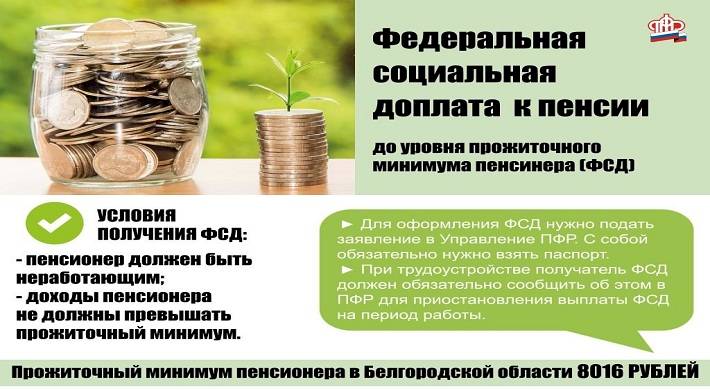
Who is entitled to pensions in Russia?
Retirement age in Russia
As mentioned earlier, the current Russian retirement age of 60 for men and 55 for women will increase by five years between now and 2028. Despite this, some citizens can retire early and still receive a state pension.
First of all, workers in short-life industries or those exposed to significant risks in the workplace can retire early and have their pension calculated based on a “bridge pension” system.
And, despite changes introduced in 2019, women who have worked for at least thirty-seven years, and men who have worked for at least forty-two years, can retire early and receive a state pension, although they must be at least 55 and 60 years respectively.
While some Russians choose to retire early, many work into old age. It is believed that there are about twelve million working pensioners in Russia, which is about a quarter of all pensioners.
Pension rates and contributions
Since February two thousand and seventeen, pensions in Russia have been indexed according to the actual growth rate of inflation (currently about 5.3 percent). In December two thousand and eighteen, the state newspaper Rossiyskaya Gazeta reported that the average monthly pension in Russia was 14,144. The highest pensions in Russia were received by residents of Chukot - 22,500 rubles, and the lowest - in Dagestan and Kabardino-Balkaria.
Since two thousand and nineteen, a new law has been adopted, according to which the average monthly old-age pension for non-working pensioners reaches fifteen thousand rubles; it was introduced along with plans to increase the pension to twenty thousand rubles by 2024.
Although the state pension is lower than in most Western countries, a large number of citizens of retirement age may receive additional benefits, such as free travel on public vehicles or discounts on medicines.
Employers' contribution
Employers, as well as self-employed entrepreneurs and professionals, are required to pay insurance premiums, both for their employees and for themselves.
The pension system is financed by mandatory pension contributions made to the Pension Fund, which manages the state pension system.
The pension is divided into three parts: the basic part, the insurance part and the funded part. Unlike the first two parts, the latter applies only to persons born after 1967. It is hereditary and can be transferred to a licensed non-state PF.

